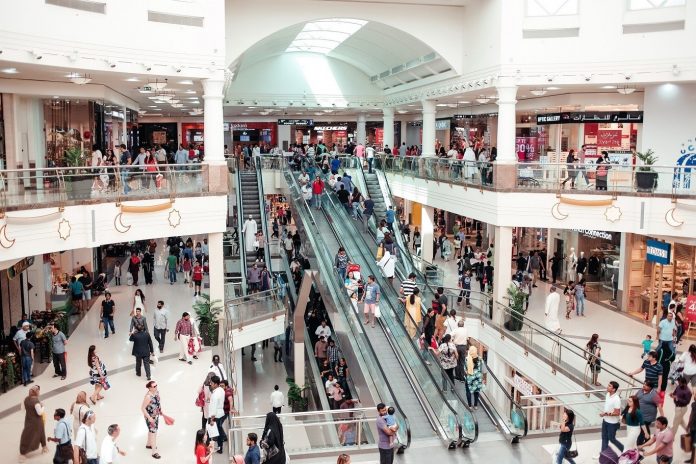
In mid-April The Dubai Mall, the largest retail space in the UAE, announced the launch of its own virtual store on the Gulf e-commerce platform, noon.com.
A partnership between the Public Investment Fund of Saudi Arabia and Emirati businessman Mohamed Alabbar, noon.com was launched in November 2016 and has since become the largest e-commerce company in the GCC.
The initiative with The Dubai Mall allows customers to purchase goods from cooperating brands through noon.com’s platform, with an associated delivery service to enable adherence to the emirate’s strict curfews and social distancing measures.
After initially offering 24 brands, the number available through the virtual store now stands at 43, with others expected to join in the coming weeks.
This came as Mall of the Emirates, Dubai’s second-largest mall, also launched its own online shopping platform, called ‘Trends at Your Doorstep’, while hypermarket chain Carrefour UAE upgraded its portal into a full-scale online marketplace.
Retail challenges
The developments come amidst a difficult time for the emirate’s malls and retail stores.
Outside of a few shopping centres that host essential stores like supermarkets, malls across Dubai were forced to close on March 25 as part of efforts to limit community transmission of Covid-19.
While the ban was lifted on April 24 to coincide with the start of Ramadan, a number of malls, including The Dubai Mall, have decided not to reopen immediately.
Furthermore, open malls will have reduced operating hours and a limited number of shoppers, with only up to 30% of their regular customer capacity permitted.
As a result of the month-long closure of the Dubai’s malls and ongoing restrictions to trading, many brick-and-mortar retailers have sought to rearrange rental agreements or seek some form of rental relief from mall operators.
While many were granted some financial relief during the period of mall closures, retailers are now calling for additional assistance from mall operators to offset any losses associated with the remaining trading constraints.
With various social distancing measures and significant travel restrictions still in place, retailers expect significantly lower footfall over the next few months, while – given that retail is closely aligned with the Dubai’s tourism industry – the various UAE-wide travel bans are set to compound the sector’s difficulties in 2020.
Economic impact and e-commerce
Since wholesale and retail trade contributes around one-quarter of Dubai’s GDP, the closure of malls and ongoing restrictions are expected to have a significant impact on the emirate’s economy this year.
 In a report released in late April, UK consultancy Capital Economics predicted that Dubai’s economy could contract by between 5-6% this year if significant restrictions are maintained until summer, while the IMF forecast in its revised 2020 outlook that the economy of the broader UAE would decline by 3.5%.
In a report released in late April, UK consultancy Capital Economics predicted that Dubai’s economy could contract by between 5-6% this year if significant restrictions are maintained until summer, while the IMF forecast in its revised 2020 outlook that the economy of the broader UAE would decline by 3.5%.
While brick-and-mortar retailers have faced – and continue to face – a challenging period, many e-commerce companies around the world have experienced a rise in sales as a result of the virus-related measures.
To restrict person-to-person contact, local authorities in Dubai have encouraged residents to conduct their shopping online. As malls progress towards online platforms, the virus could have the effect of accelerating greater uptake of e-commerce in the emirate.
Health situation
The shifting trends in the retail sector come amid ongoing efforts to combat the effects of Covid-19.
On April 4 Dubai implemented a 24-hour lockdown, which only permitted those in non-essential professions to leave their homes to purchase medical supplies and groceries.
As of April 24, the local government eased the measures, allowing residents to engage in up to two hours of exercise daily between the hours of 6am and 10pm, while also allowing people to visit close relatives and travel on Dubai’s Metro line.
Key to the emirate’s approach has been extensive testing, with local authorities launching a series of home and drive-through testing initiatives.
While statistics are not available for individual emirates, as of April 26 the UAE had 10,349 confirmed cases of the virus and 76 deaths.




































